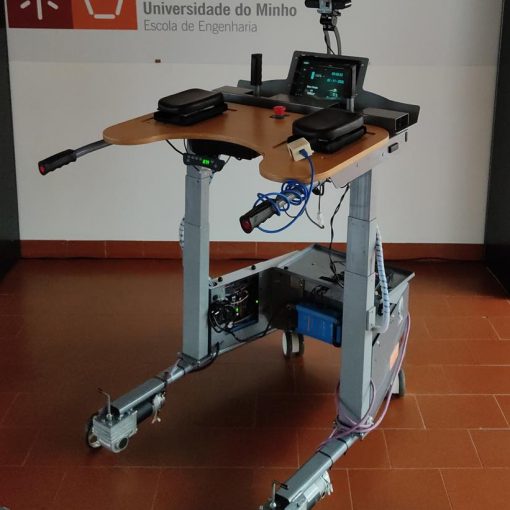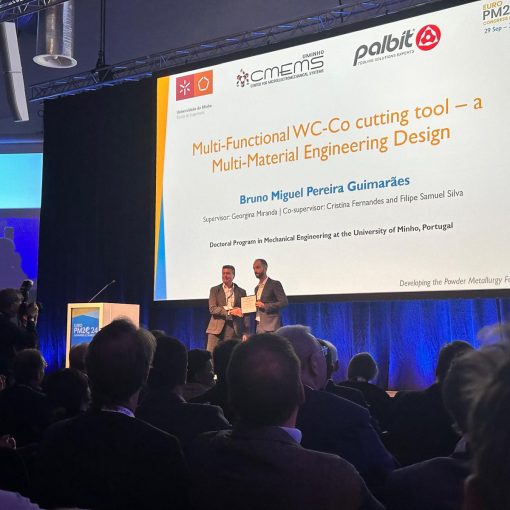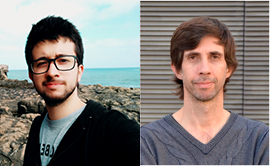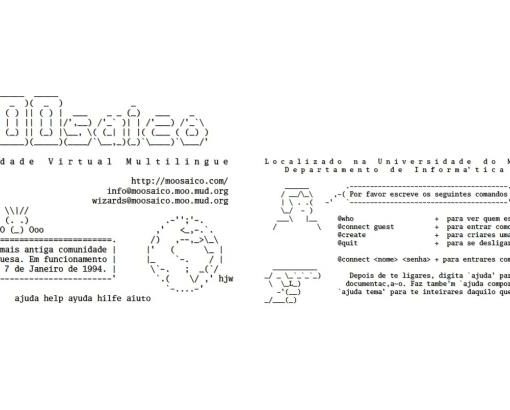 Vítor Espírito Santo, alumnus of the School of Engineering, is developing meat from cells, in California, USA. He runs the Cellular Agriculture Department at “Eat Just”, one of the 80 companies in the world dedicated to lab-grown meat. Singapore was the first country in the world to approve the marketing of these products; they are chicken nuggets, served in an upscale restaurant.
Vítor Espírito Santo, alumnus of the School of Engineering, is developing meat from cells, in California, USA. He runs the Cellular Agriculture Department at “Eat Just”, one of the 80 companies in the world dedicated to lab-grown meat. Singapore was the first country in the world to approve the marketing of these products; they are chicken nuggets, served in an upscale restaurant.
The alumnus presented his work on 19 February, at the XVI Biomedical Engineering Journeys of UMinho, broadcast online on YouTube. “Intensified animal production has tremendous ethical, environmental, safety and inefficiency issues and involves slaughtering millions of animals per year. We therefore propose to change to less aggressive meat production methods and with similar product quality,” explains the bracarian. “I believe that this healthy and sustainable project will have a significant impact on the world population in the medium term,” he highlights.
The researcher has a Master’s degree in Biomedical Engineering (2007) and a PhD in Tissue Engineering (2012) from UMinho. He has worked from the United Kingdom to Japan in the areas of cell biology, tissue engineering, bioprocesses and entrepreneurship, which has enriched him for the current challenge. Vítor Espírito Santo coordinates at “Eat Just” the choice of the initial cells, the isolation techniques of those from the animals, the expansion of cells in bioreactors and then the product development. He is also responsible for communicating with investors, media and international regulatory agencies for the approval of this type of product.
That start-up had already created an alternative to the egg, which dispenses with chickens and eggs, based on cells of plant origin. Now it wants to reproduce cells extracted from animals until it has a sufficient number to create a steak on a structure that guarantees consistency. “In the reasons that led to the current pandemic, we wondered how the consumption of traditional meat, without proper control, could be harmful. In vitro grown meat, on the other hand, is produced in sterile fermenters/reactors and with above average hygiene practices,” he says.
The day before yesterday, at the presentation of his book “How to avoid a climate disaster”, the American Bill Gates defended that rich countries should only eat beef made in laboratories. The intention is to combat the emissions of gases that cause the greenhouse effect, namely methane, associated to cattle raising, which has translated into an increase in temperature of up to 4ºC this century, according to some studies.
The XVI Conference of Biomedical Engineering took place from 18 to 20 February, with 35 speakers and will also address the development of a ventilator, covid-19, a virus-proof intelligent helmet and artificial intelligence in medical imaging, among other topics. It was organised by the Gabinete de Alunos de Engenharia Biomédica da UMinho..



